Easing Into a Zero-Emission Commercial Vehicle Fleet: How One Hydrogen Truck Can Start a Revolution


Easing Into a Zero-Emission Commercial Vehicle Fleet: How One Hydrogen Truck Can Start a Revolution
The push towards sustainability is no longer just a niche concern. For businesses with commercial fleets, transitioning to zero-emission vehicles (ZEVs), such as electric commercial vehicles and hydrogen trucks, is becoming a priority. However, the prospect of a complete overhaul can be daunting. This is where a "start small" approach can get you started on your journey to a net-zero fleet. For many fleets, this might begin with alternative fuel options such as flex fuel vehicles that run on E85 fuel, which offer a more gradual and cost-effective path towards sustainability. Piloting a single ZEV can be a game-changer, offering valuable insights and sparking a ripple effect that can transform an entire fleet.
Real-World Examples of Businesses Starting Small
Let's look at three companies that took the plunge with one ZEV and reaped the rewards:
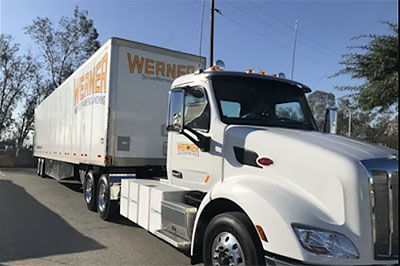 Werner Enterprises: Hydrogen Power Takes the Wheel
Werner Enterprises: Hydrogen Power Takes the Wheel
Werner Enterprises, a giant in the transportation and logistics industry, chose to test the waters with a hydrogen fuel cell truck. The results? Reduced emissions, improved fuel efficiency, and enthusiastic driver feedback. This initial success ignited a passion for sustainable transportation, motivating Werner to expand their ZEV fleet further.
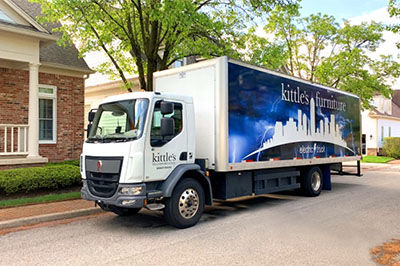 Kittle's Furniture: Electrifying Local Deliveries
Kittle's Furniture: Electrifying Local Deliveries
Kittle's Furniture, a regional retailer, opted for a Kenworth K270E electric truck for its local delivery routes. The payoff was substantial: significant fuel savings and reduced maintenance expenses. This financial win, coupled with the truck's impressive performance, has Kittle's eyeing more electric vehicles for its fleet.

McKinstry: A Multi-Pronged Electric Approach
McKinstry, a national construction and energy services firm, embraced a diversified strategy. They integrated Ford Lightning pickups for supervisors and electric forklifts for warehouses and plan to add electric vans and
larger trucks. Their multifaceted approach has yielded lower operating costs, reduced emissions on job sites, and a bolstered reputation as a sustainability pioneer.
Why Starting with One Commercial ZEV Makes Sense
These success stories illustrate why starting small is a smart move:
- Data-Driven Decisions: A pilot program provides real-world data on performance, cost savings, and driver experience, informing future fleet decisions.
- Building Internal Expertise: Working with one ZEV enables teams to gain hands-on experience with the technology, charging infrastructure, and maintenance.
- Showcasing Commitment: Even a single electric SUV in your fleet is a visible symbol of your company's dedication to sustainability, resonating with customers, employees, and investors.
- Finding the Right Fit: Testing different vehicle types (electric, hydrogen, etc.) helps identify the best solution for specific operational needs whether that's an electric cargo van or a hydrogen truck.
Fleet Management Solutions: Tracking Your ZEV Journey
Just as you can gradually introduce hydrogen trucks or electric commercial vehicles into your fleet, you can also adopt fleet management solutions in phases to track and optimize your transition. These solutions offer valuable insights into vehicle performance, charging patterns, cost savings, and overall efficiency. Here are a few examples that scale well as your ZEV fleet grows:
- Telematics (GPS Tracking and Vehicle Data):
- Start Small: Track basic parameters like vehicle location, mileage, and fuel/energy consumption.
- Scale Up: Add features like driver behavior monitoring, vehicle health alerts, and route optimization.
- Charging Management Software:
- Start Small: Monitor charging sessions, energy usage, and initial ZEV(s) costs.
- Scale Up: Implement smart-charging strategies to optimize charging times and reduce energy costs, integrate with renewable energy sources, and manage multiple charging stations.
- Fleet Maintenance Software:
- Start Small: Track basic maintenance schedules and costs for your ZEVs.
- Scale Up: Utilize predictive maintenance based on real-time data, monitor battery health, and streamline repair processes.
- Reporting and Analytics:
- Start Small: Generate basic reports on ZEV performance, cost savings, and environmental impact.
- Scale Up: Utilize advanced analytics to identify trends, optimize operations, and make data-driven decisions about fleet expansion.
Examples of Scalable Fleet Management Solutions:
- Geotab: Offers a comprehensive platform with modular add-ons for various functionalities.
- Samsara: Provides a unified platform for fleet management, driver safety, and site visibility.
- Fleetio: Focuses on maintenance management and can be customized to track ZEV-specific needs.
Implementing Fleet Management Solutions
In keeping with a trial-basis theme, the key is to choose a scalable solution, start with the basics, and gradually add more features as your ZEV fleet grows and your needs evolve. By leveraging these tools, you gain valuable insights into your ZEVs' performance, optimize your operations, and maximize the benefits of your transition to a more sustainable fleet.
Overcoming Challenges and Concerns
While the benefits are clear, concerns about ZEVs are natural. But many of these worries are based on outdated information:
- Range Anxiety: Advancements in battery technology and the expansion of charging networks are continually increasing the range and convenience of ZEVs.
- Upfront Costs: Various incentives, grants, and financing options are available to offset the initial investment in ZEVs.
- Infrastructure Limitations: The number of public charging stations is multiplying, and businesses also have the option to build their own charging infrastructure.
Conclusion
Transitioning to a zero-emission commercial fleet doesn't have to be an all-or-nothing proposition. Start by exploring the diverse ZEV options available and learn from other businesses' success (and failure) stories. By starting with a single vehicle, companies can gain valuable experience, mitigate risks, and discover the transformative power of ZEVs. This first step can pave the way for a greener, more efficient, and ultimately more profitable future.
SHOP ADVANCED FUEL VEHICLES NOW
Return to NuPropel page for more articles all about advanced fuels and zero emissions vehicles.
 About the author: Ryan E. Day is a communications specialist at Work Truck Solutions, where he turns complex ideas into engaging content that drives business impact across industries and platforms. With 13 years of experience in B2B content marketing, Ryan specializes in storytelling, strategic messaging, and digital optimization.
About the author: Ryan E. Day is a communications specialist at Work Truck Solutions, where he turns complex ideas into engaging content that drives business impact across industries and platforms. With 13 years of experience in B2B content marketing, Ryan specializes in storytelling, strategic messaging, and digital optimization.
Ryan's work has been featured in Comvoy, Quality Digest, Youtube, and Amazon Kindle. Connect with Ryan on his Linkedin page.
 Driving Business Growth Through Financial Flexibility: How You Buy Your Truck Matters
Driving Business Growth Through Financial Flexibility: How You Buy Your Truck Matters The Comvoy 2026 Event Calendar: We’ll See You There
The Comvoy 2026 Event Calendar: We’ll See You There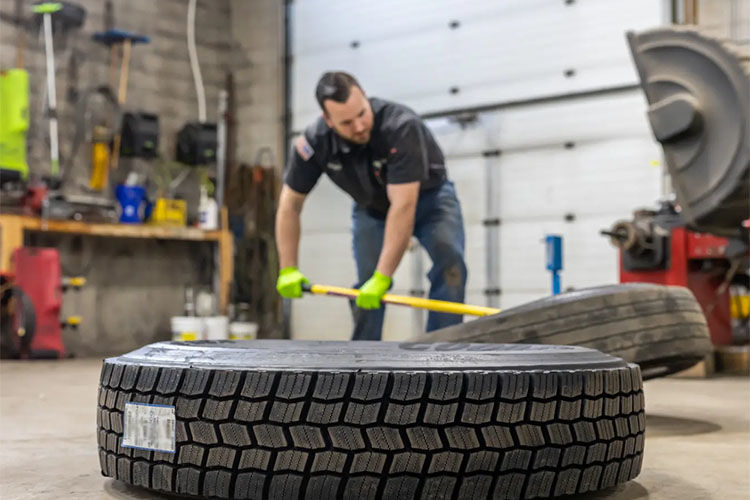 Wheel Safety Is Your Business: How to Protect Your Fleet and Your Bottom Line
Wheel Safety Is Your Business: How to Protect Your Fleet and Your Bottom Line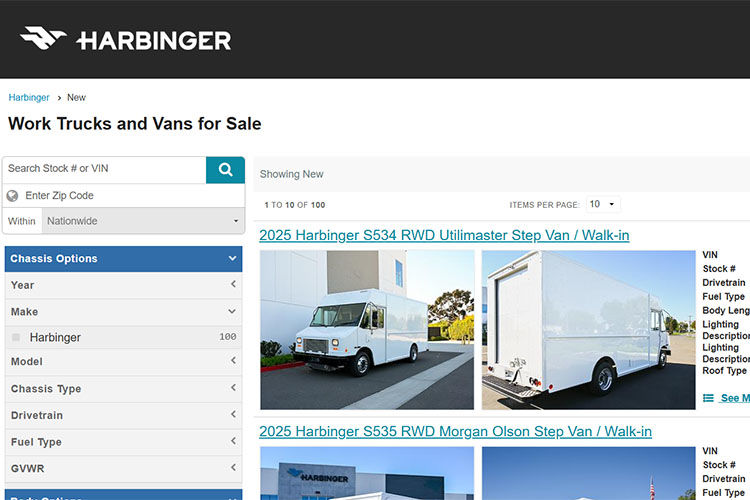 Harbinger Electric Step Vans and Cab Chassis Vehicles Now Available on Comvoy
Harbinger Electric Step Vans and Cab Chassis Vehicles Now Available on Comvoy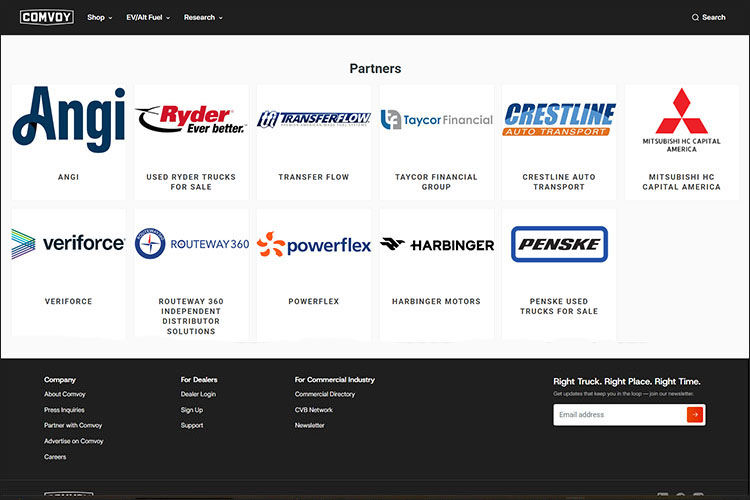 Comvoy’s Partner Network: Your Shortcut to Smarter Fleet Solutions
Comvoy’s Partner Network: Your Shortcut to Smarter Fleet Solutions







